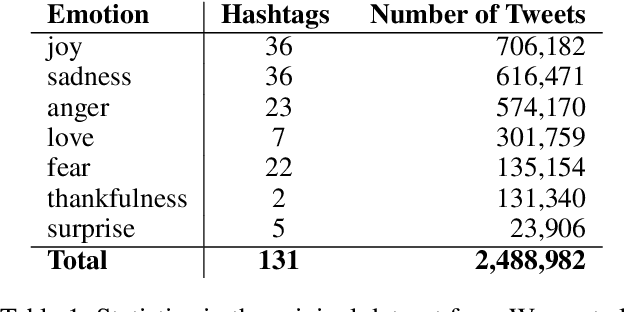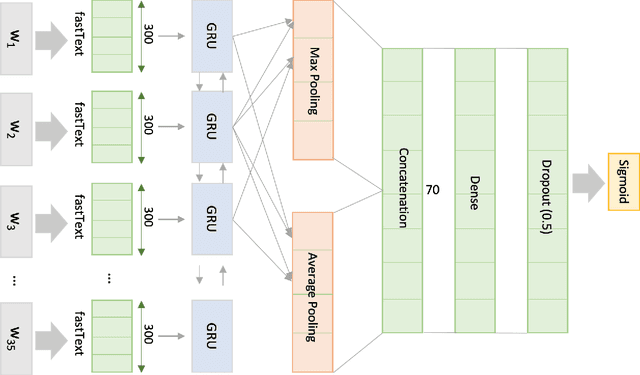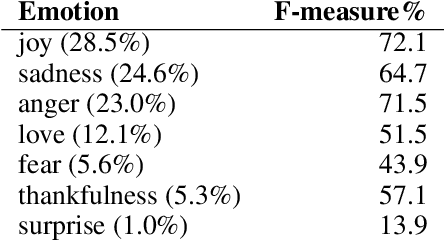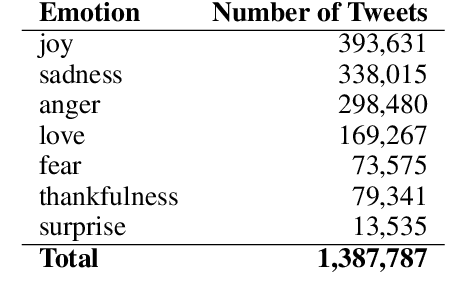Emotion Detection in Text: Focusing on Latent Representation
Paper and Code
Jul 22, 2019



In recent years, emotion detection in text has become more popular due to its vast potential applications in marketing, political science, psychology, human-computer interaction, artificial intelligence, etc. In this work, we argue that current methods which are based on conventional machine learning models cannot grasp the intricacy of emotional language by ignoring the sequential nature of the text, and the context. These methods, therefore, are not sufficient to create an applicable and generalizable emotion detection methodology. Understanding these limitations, we present a new network based on a bidirectional GRU model to show that capturing more meaningful information from text can significantly improve the performance of these models. The results show significant improvement with an average of 26.8 point increase in F-measure on our test data and 38.6 increase on the totally new dataset.
 Add to Chrome
Add to Chrome Add to Firefox
Add to Firefox Add to Edge
Add to Edge